Raisi Issues Yet Another Order To Neutralize US Sanctions
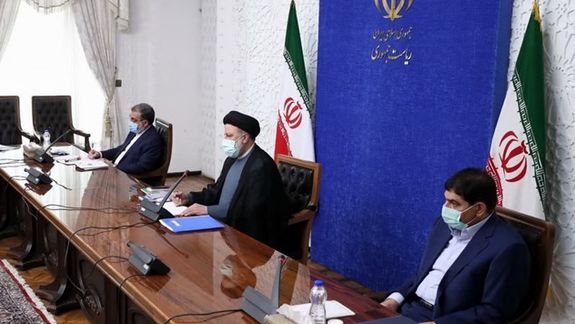
Iran’s President Ebrahim Raisi has ordered all ministries and agencies to coordinate efforts in “neutralizing” US sanctions and defending the national currency.

Iran’s President Ebrahim Raisi has ordered all ministries and agencies to coordinate efforts in “neutralizing” US sanctions and defending the national currency.
In a meeting of the government economic coordination committee, Raisi also appointed his first vice president Mohammad Mokhber to head efforts in dealing with US sanctions, which have crippled Iran’s economy since 2018.
Facing unsurmountable difficulties in protecting the value of Iran’s currency the hardliner president also ordered the Central Bank of Iran (CBI) and other agencies to confront those who “manufacture negative sentiment” against the rial.
The main reason behind a ninefold fall in the value of the rial in four years, is lack of revenues from oil exports, sanctioned by the Trump administration since 2018.
Raisi, who assumed office in August promising a new era of more effective leadership, has so far issued decrees asking his ministers to achieve goals that the previous government was not able to accomplish. Controlling the value of the national currency or skyrocketing inflation are two issues that Raisi and others address in their statements daily, without a viable plan emerging.
Tehran has been resisting efforts to revive the 2015 nuclear agreement that would lift sanctions and provide a lifeline to its economy.
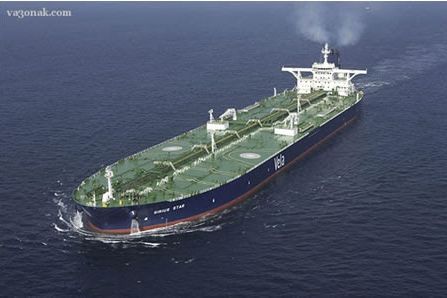
Iran and Venezuela continue exchanging oil products despite US sanctions on both countries, without any visible action by US which tries to engage with both.
An Iran-flagged supertanker has sailed from Venezuelan waters carrying 2 million barrels of heavy crude provided by state-run oil firm PDVSA, according to documents seen by Reuters and vessel tracking services.
The shipment is part of a deal agreed by PDVSA and its counterpart National Iranian Oil Company (NIOC) that exchanges Iranian condensate for Venezuela's Merey crude. The swaps aim to ease an acute shortage of diluents that has cut Venezuela's oil output and exports, Reuters reported last month.
In August 2020. the United States confiscated four Iranian fuel shipments that had been bound for Venezuela, disrupting at the time a key supply line for both Tehran and Caracas as they defied US sanctions. In October 2020, US announced that it had sold the gasoline and refined oil.
Dino I, a very large crude carrier (VLCC) owned and operated by NIOC's National Iranian Tanker Company (NITC), finished loading the Venezuelan oil at PDVSA's Jose port late Friday, according to the documents, a source and monitoring service TankerTrackers.com.
The bilateral oil trade could be a breach of U.S. sanctions on both countries, the US Treasury Department told Reuters last month, citing government orders that establish the punitive measures.
Reuters said a Treasury spokesperson on Saturday declined to comment further on the latest development. If the US allows the shipment to proceed, it would be a change from the Trump era policy of vigorously enforcing US sanctions against Iran.
Already the vessel was allowed to reach Venezuela in September with its transponder turned off while carrying 2.1 million barrels of Iranian condensate.
A second condensate cargo of similar size is expected to be delivered to Venezuela in the coming weeks as part of the swap routine, which will be in effect for six months in its first phase.
The Biden administration has declared its opposition to Trump’s withdrawal from the 2015 nuclear deal with Iran and has entered indirect talks with Tehran to revive the agreement. So far, Washington has kept the Trump-era sanctions, as Iran has failed to reach an agreement to revive the Joint Comprehensive Plan of Actions, JCPOA.
PDVSA first launched the exchange last month by sending 1.9 million barrels of Merey heavy crude on the Iran-flagged supertanker Felicity.
The exchange provides the OPEC nation with a stable supply of blending material needed to convert its extra heavy oil into exportable grades. The pact also delivers heavy oil to Iran for blending, refining or marketing to Asian customers.
Iran and Venezuela have strengthened their cooperation in the last year even under the watchful gaze of the United States, which has in recent years reimposed sanctions on Iranian state entities, including NIOC, and in 2019 blacklisted PDVSA.
With reporting by Reuters
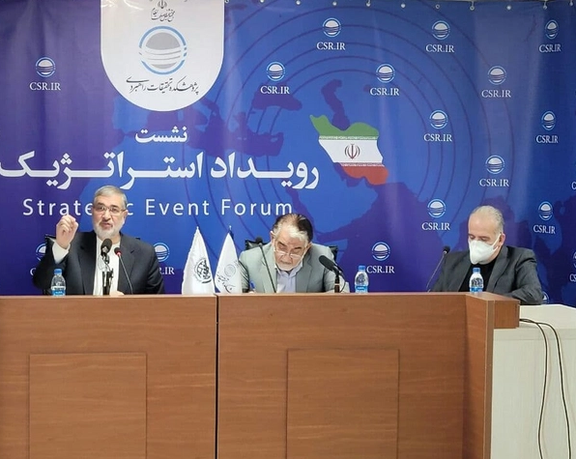
A roundtable discussion in Tehran has revealed two different visions about the economic future of Iran - improved ties with the world or reliance on the East.
Two local research institutes jointly sponsored a mini conference about economic diplomacy, which mainly revolved around the merits of the current emphasis by Iran on expanding ties with China and Russia to save its economy from crisis and a subtle rebuttal by one of the speakers.
At the two ends of the spectrum, a former ambassador to South Africa and former deputy oil minister Asghar Ebrahimi-Asl defended the strategy of relying on East, while the head of the Iran-China chamber of commerce Majid Reza Hariri spoke about the importance of foreign investments and strong ties with all economic powers.
Ebrahimi-Asl, who is a petroleum engineer reportedly with an MS degree from the University of Southern California (USC), criticized what he said was the policy of the former Rouhani administration in trying to improve ties with Europe and the United States. He was referring to nuclear negotiations with world powers that resulted in the 2015 nuclear deal later abandoned by former US president Donald Trump and the imposition of harsh sanctions.
Ebrahimi-Asl argued for Iran’s self-reliance, echoing arguments by Principlists and hardliners who follow Supreme Leader Ali Khamenei’s dictum. The former deputy oil minister insisted that fossil fuels will remain important well into the next decades and Iran has plenty of oil and gas reserves it can rely on. He also defended the view that the US is not a reliable country and will continue to plot against Iran.
Clearly, Ebrahimi-Asl said, the United States has faced defeats and failures while countries in the East and members of BRICS have become economic powers that Iran can rely on.
Majid Reza Hariri, with carefully observing the redlines of the Islamic Republic in public discourse, tried to put the emphasis on the acute need for foreign investments, which need good relations with the rest of the world.
First, he argued that the recent media and official emphasis on ‘economic diplomacy’ to boost trade suffers from a lack of clear definition. Iran’s decision makers should clarify what the term economic diplomacy means.
Hariri said that Iran chooses military influence in the region over influence in commerce with countries such as Iraq, Syria and Lebanon, but economic power is another important factor in strengthening national security.
The head of the China chamber of commerce implicitly referred to Iran’s policies which encouraged self-isolation after the 1980s Iran-Iraq war and said that if foreign companies had come and stayed in Iran and invested, it would have been much harder for others to impose sanctions on the country.
Hariri also drew attention to capital flight from Iran. He said capital that has left the country is three times more than foreign investments in the past three decades. He argued that state entities and three consecutive presidents since 1997 have failed to reach their targets in industrial development and expansion.
Hariri’s remark means that he is pinpointing inherent and systemic problems with Iran’s economic vision and policies, even before serious sanctions were imposed first by the United Nations from 2011-2015 and then by the US in 2018.
Hariri, at the end, emphasized the importance of economic ties with China but he also highlighted Iran’s favorable geo-economic position in the Persian Gulf and the Sea of Oman and argued for the country to expand on commerce and serve as an international commercial hub.
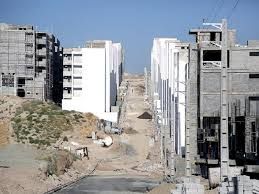
A member of the Iranian Parliament's has pulled back from an assertion that officials were in talks with Chinese companies over building affordable housing.
Eghbal Shakeri, who is a member of Parliament's urban development committee, was quoted by Tasnim news agency on Monday that the ministry of roads and urban development was discussing with Chinese operators their possible involvement in President Ebrahim Raisi's (Raeesi) ambitious housing plans in order to avoid the delays in building projects under previous administrations. The urban development minister has also hinted that foreign companies, including those from China might be invited to bid on the housing project.
Iranian Students News Agency Thursday reported that Shakeri, who is also a member of the ministry's housing council, had now explained that the negotiations he referred to were "related to the ministry's own works," and not to Raisi’s scheme for building one million affordable units for sale every year.
The economic website Tejarat news last month suggested Raisi’s plans would need 10 trillion rials ($40 million) daily, or $15 billion annually, which is more than Iran’s oil export revenues last year. The World Bank noted this month that despite slight economic growth “poor economic activity, partly due to US [United States] sanctions, low oil revenues and higher recurrent and COVID-19 related expenditures” meant that Iran’s government faced a widened fiscal deficit.
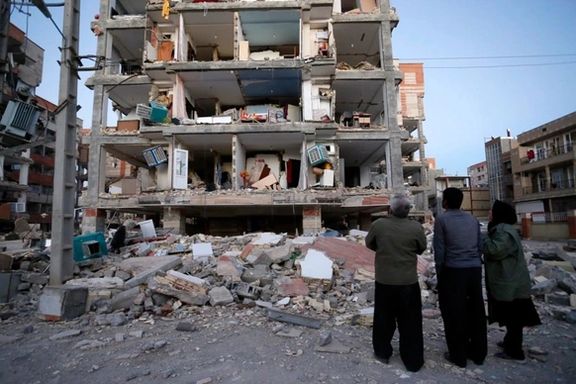
China is easily the world’s biggest lender for development projects, with Chinese banks committing over $462 billion in development finance to 93 countries between 2008 and 2019, including building projects from Hong Kong to north America. China itself has had a massive program of social and affordable housing.
But Iranian private-sector operators and some media have rejected Chinese involvement, arguing that both resources and technical know-how are available in Iran. Speaking to the economic website Eghtesad News Wednesday, Iraj Rahbar, deputy chairman of Iran's Housing Companies Association, said Chinese companies could not expedite matters.
"The problem of delay in delivery [by Iranian companies] results from cash flow issues, not their technical and engineering incompetence in comparison with the Chinese," he said. Rahbar argued that the government's failure to pay contractors on time would hinder projects whether domestic or Chinese. "They will just abandon the work," he said.
Rahbar cited the Tehran-North Freeway project to connect the capital to the Caspian Sea region through the Alborz mountains. "We used Chinese companies but they abandoned the project after 20 years and left Iran," he said. "Sadly, we haven't learned a lesson from such cases."
The new minister for urban development, Rostam Ghasemi, has also suggested that Iran has everything needed for a large housing program − land, building material and engineering. On Thursday Ghasemi said money was also available, with 3,600 trillion rials (about $14.5 billion at current exchange rates) to be offered in loans to buyers in the first year.
Land would be provided free, the minister said, with the government also investing in infrastructure and amenities, and offering discounts on building tax.
While most principlist media and politicians welcome Raisi's plan, critics disparage it by citing the Mehr housing scheme of President Mahmoud Ahmadinejad (2005-13), when oil prices were far higher than today and Iran, especially until 2011, was under far less stringent sanctions.
Three million units were built under the plan during Ahmadinejad’s presidency and a further 1.3 million under President Hassan Rouhani (2013-21), although Rouhani in 2014 conceded the scheme had boosted inflation.
In a devastating earthquake in western Iran in 2018, Mehr apartment buildings sustained more damage than other constructions and President Hassan Rouhani called for an investigation . Many new owners complained about problems, including a lack of infrastructure and amenities like public transport and schools near new apartment blocks, often built away from cities and towns.
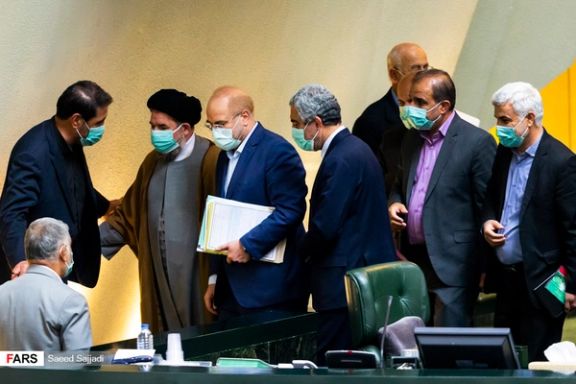
By the end of the current Iranian fiscal year, the government needs an additional $12 billion to balance its budget, with revenues falling short of projections.
Sharq news website In Tehran has reported that by March 20, 2022, when the Iranian fiscal year ends the government either has to raise an additional $12 billion or cut expenditures by the same amount, otherwise it has to continue printing money. This constitutes more than 30 percent of the total budget. Other estimates have put the number much higher.
The dollar value of the deficit is calculated according to an average exchange rate of 250,000 rials to one US dollar since March 21. The government’s nominal exchange rate of 42,000 rials to the dollar is essentially meaningless as it only applies to a limited number of imported essential good subsidized with cheap dollars provided to importers by the central bank.
If the deficit is calculated based on the official government exchange rate, it would reach $71.5 billion.
Fararu website in Iran says that new head of Iran’s Planning and Budget Organization, Masood Mirkazemi has given up balancing the current budget and is already looking at next year’s deficit. Mirkazemi, appointed by the new president Ebrahim Raisi in August has warned that printing more money will simply contribute to an already high rate of inflation.
Latest figures published by the Statistical Center of Iran showed that overall annual inflation is close to 50 percent, while food prices have risen nearly 100 percent in the past year.
The predictable issue with the budget deficit is over-optimistic oil export projections made last December when the current budget was being drafted. Iranian officials put expected oil exports at a minimum of 1,5 million barrels per day, with some predicting over two million barrels. But the big caveat in these projections was the lifting of US sanctions. In the meantime, Iran did not reached agreement in its nuclear talks that took place from April to June, and US sanctions remained in place.
At the present time, no new negotiations are scheduled because Tehran has not agreed to return to the talks adjourned since June.
Based on a report by the Parliament research Center, only half of the projected budget revenues have been realized. The news about the government’s oil revenues is worse, with only three percent of the projected exports money going into the budget.
This is a bit puzzling because Iran has been reported selling a few hundred thousand barrels of oil per day. There could be different explanations for the discrepancy. First, there is the distinct possibility that illicit oil exports to China are not being paid for by cash. The second possibility is that payments are made also in illicit ways and either do not enter government coffers or are deliberately not being reported.
Iran’s oil exports plunged from a high of around 2.5 million barrels per day in 2017 to as low as 320,000 bpd in 2019-2020, according Kpler data intelligence firm. Illicit oil exports have somewhat increased in 2021 but by their nature of secret deals, there is little cash revenue for Iran.
Nevertheless, only three percent of oil revenues being realized is a truly low number. Even 370,000 barrels of oil shipped per day would be 15 percent of the pre-sanction level.
Having six more months until the end of the fiscal year, Iran is facing a serious budget deficit, which means it simply cannot pay operational expenses, such as regular wages to millions of employees, pay increases teachers and other government employees demand and leave many projects unfinished.
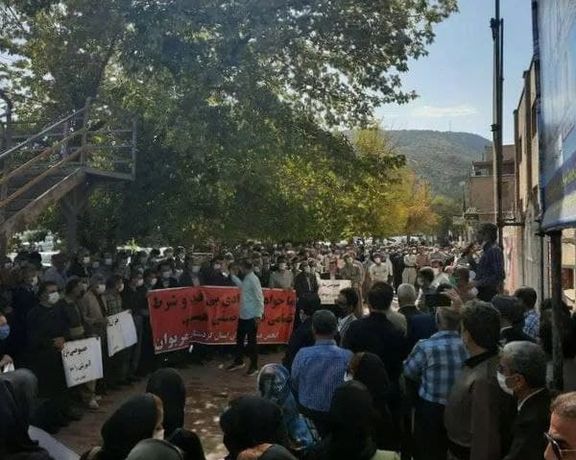
Teachers in Iran held protest rallies in several cities to demand the passage of legislation that would guarantee higher pay amid skyrocketing inflation.
Responding to calls by teachers’ groups, protesters congregated outside the office of the education ministry in many cities and also outside the headquarters of the Planning and Budget Organization in Tehran on Thursday.
Parliament has failed so far to give its final seal of approval to a bill which would create a pay scale for teachers commensurate with the pay scale of university professors, guaranteeing up to 80 percent of the same salary grade.
Lawmakers have hesitated because there is no budget if a pay raise goes into effect. This year’s government budget has between 30-50 percent deficit, with forecasts of oil exports not having been realized.
Teachers have been frequently protesting in the past two months demanding a pay increase as the annual inflation rate has reached nearly 50 percent with food prices soaring an average of 100 percent in the past year.